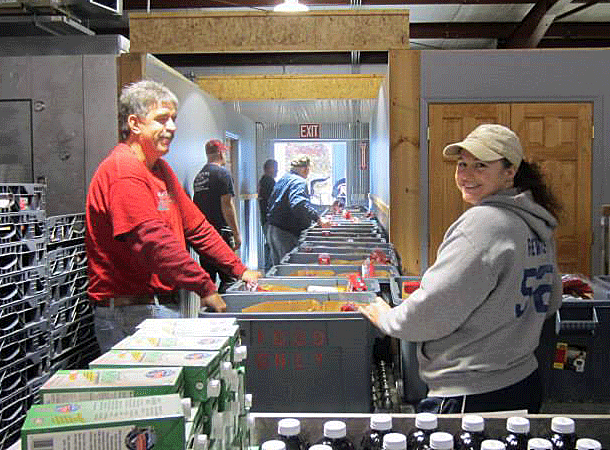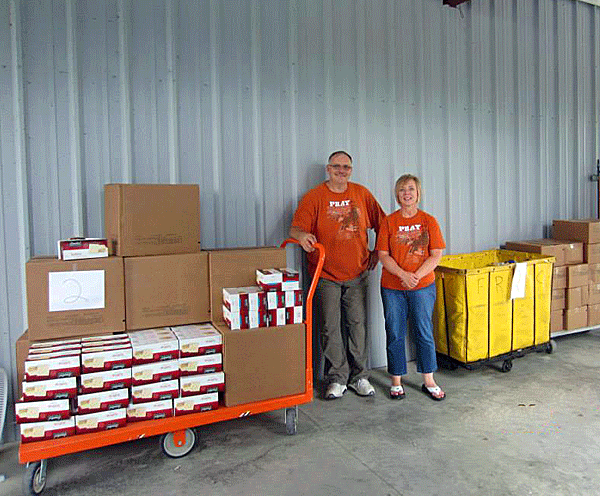


FRCC Food Bank
Good nutrition should be a basic right of life, not a privilege. Yet according to Household Food Security in the United States in 2013 (Coleman-Jensen, A., Gregory, C., & Singh, A. (2014) USDA ERS):
-
In 2013, 49.1 million Americans lived in food insecure households, including 33.3 million adults and 15.8 million children.
-
In 2013, 14 percent of households (17.5 million households) were food insecure.
-
In 2013, 6 percent of households (6.8 million households) experienced very low food security.
-
In 2013, households with children reported food insecurity at a significantly higher rate than those without children, 20 percent compared to 12 percent.
-
In 2013, households that had higher rates of food insecurity than the national average included households with children (20%), especially households with children headed by single women (34%) or single men (23%), Black non-Hispanic households (26%) and Hispanic households (24%).
-
In 2011, 4.8 million seniors (over age 60), or 8 percent of all seniors were food insecure.[v]
-
Food insecurity exists in every county in America, ranging from a low of 4 percent in Slope County, ND to a high of 33 percent in Humphreys County, MS.[vi]
Food insecurity has been described as "a condition in which people lack basic food intake to provide them with the energy and nutrients for fully productive lives." Given the current state of the economy, it is going to take a while for these numbers to decrease.
Hunger is defined as the uneasy or painful sensation caused by lack of food. Some people may find themselves skipping meals or cutting back on the quality or quantity of food they purchase at the stores. This recurring and involuntary lack of access to food can lead to malnutrition over time.
The ability to obtain enough food for an active, healthy life is the most basic of human needs. Food insecure households cannot achieve this fundamental element of well-being. They are the ones in our country most likely to be hungry, undernourished, and in poor health, and the ones most in need of assistance. A high number of food insecure households in a nation with our economic plenty means that the fruits of our economy, and the benefits of public and private programs for needy people, are not yet reaching millions of low-income people who are at great risk.
The Flat Rock Community Center Food Pantry is able to serve local food insecure individuals and families monthly through donations of time and tax deductible donations of food, money, and merchandise from individuals, businesses, area churches and organizations. We currently pack and distribute food packages once monthly from our Center in Jackson County, Alabama.
Charity begins at home, and we encourage you to support efforts to end hunger in your community. If your community does not currently offer hunger relief or other charitable outlets, we hope that you will consider supporting us with your tax deductible donation in our mission to anticipate and meet the food needs of the hungry in our community through education, advocacy, and the acquisition, storage, and distribution of food.


